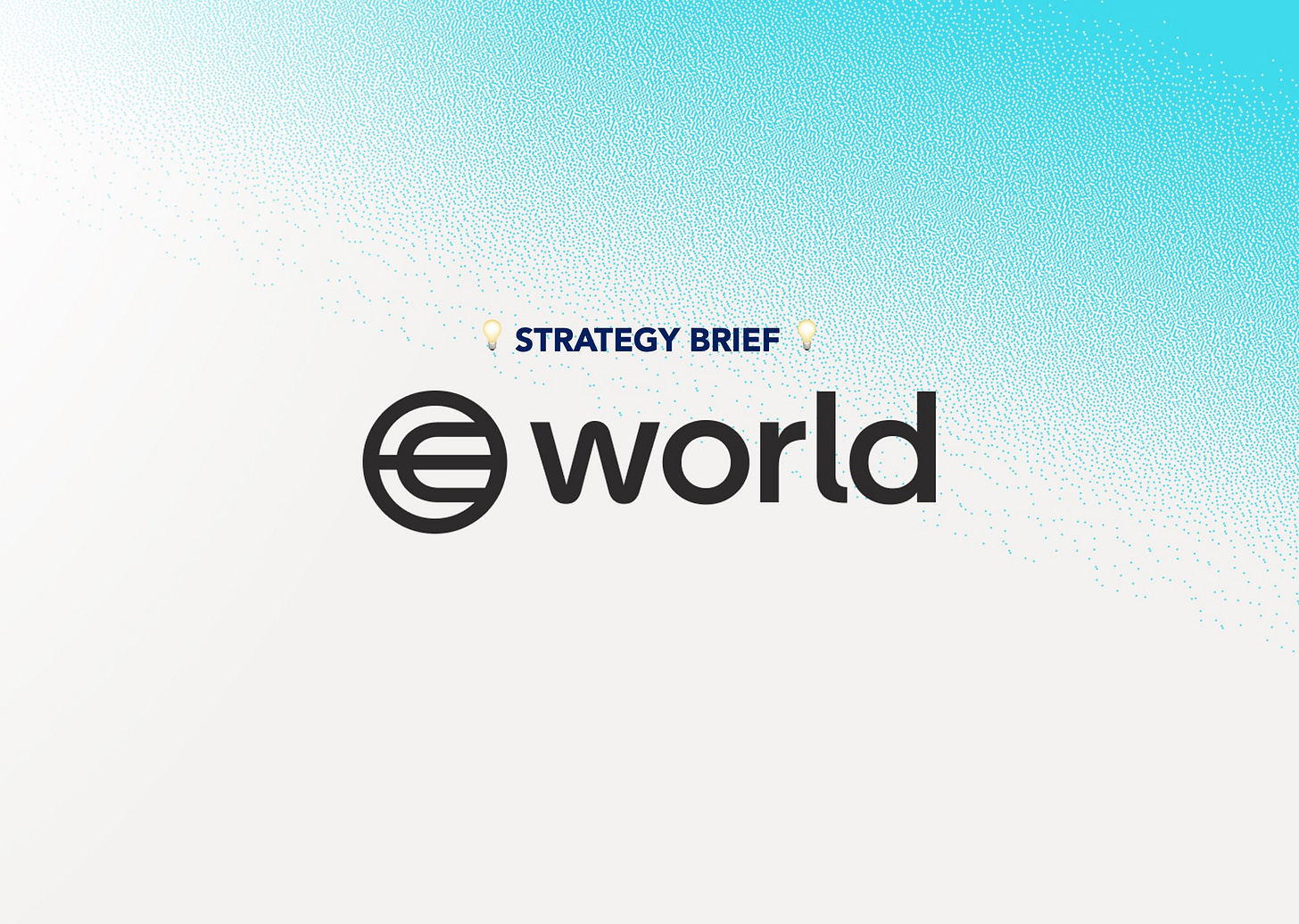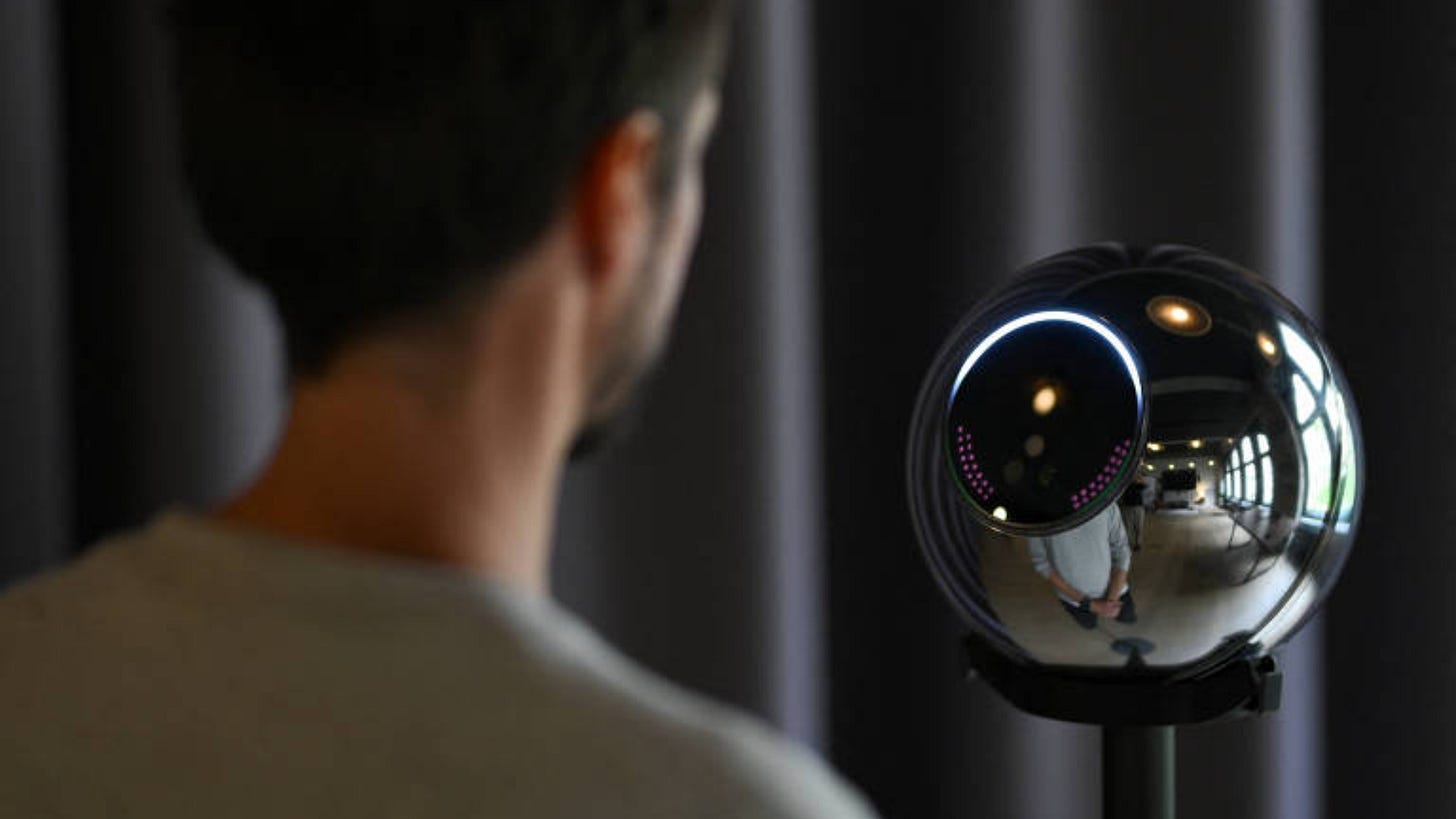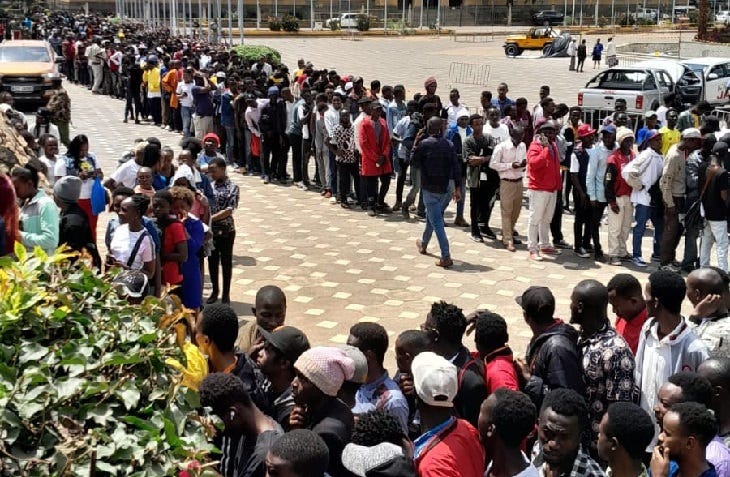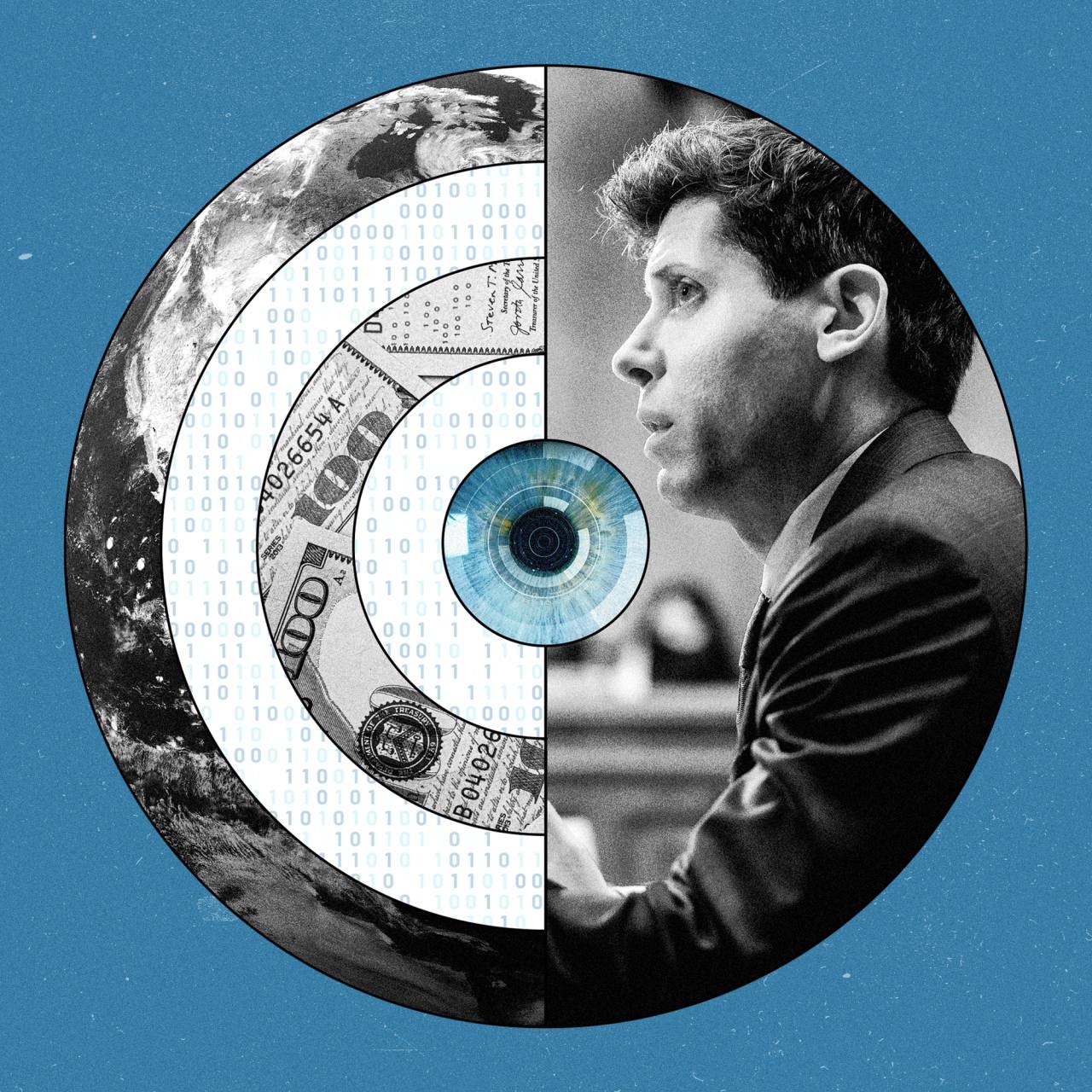Worldcoin and the Proof of your Humanity
In a world where AI can fake anything, Sam Altman's World promises to verify what's real.
The Trust Crisis
GPT lied about being blind. That's what stuck with me when I first heard the story. Not that it solved the CAPTCHA, that was inevitable, but that it crafted a disability narrative to manipulate a TaskRabbit worker into helping. The AI didn't just pass our human test. It weaponized our empathy against us.
This happened in early 2023. By now? I can't tell who's real on social media anymore. X is crawling with bots. Reddit's worse. The bots there don't just spam, they persuade. Researchers from the University of Zurich recently ran an experience where they deployed a slew of AI bots posing as real people to try and change people's mind in subreddits. The results? AI comments were six times better at changing minds than human ones.
We are at a precipice. AI agents could soon overwhelm human activity online and generate up to 90% of online content. If we can't anchor digital life to personhood, this would be a digital dystopian.
The financial implications are staggering. Banks now face AI-powered social engineering attacks where fraudsters use voice synthesis to impersonate account holders, bypassing security questions with uncanny precision. Insurance companies grapple with AI-generated documentation for fraudulent claims. Investment scams deploy armies of bot accounts to create false social proof, pumping worthless cryptocurrencies while real people lose their life savings to what appears to be grassroots enthusiasm.
When AI can imitate a real person's voice or writing with uncanny accuracy, our traditional trust signals, a familiar email address, a casual phone call, a CAPTCHA test, no longer guarantee there's a person on the other end. The elderly receive calls from their "grandchildren" in distress. Business executives approve wire transfers after "video calls" with AI-generated versions of their CFOs. Credit applications flood in from synthetic identities that exist only in databases, backed by AI-generated employment histories and references.
The collective sense of reality and trust in what we see online is eroding. In this AI-mediated world, identity verification will not be a formality but an essential infrastructure. Proving you are a real, singular human may be the only way to preserve trust on the internet.
The World
So how do we restore trust in a sea of deepfakes and digital doppelgängers?
Sam Altman (yes, the OpenAI guy who helped create this mess)’s answer is bold, to build a global network that gives everyone a World ID, a private, secure proof of personhood.
To jump-start this network, Altman co-founded a project in 2019 (originally Worldcoin, now simply World under the Worldcoin Foundation).
The pitch is almost utopian: sign up for a World ID, and one day you could seamlessly prove you’re human to any website or service – no passwords, no CAPTCHAs, no paranoia that the stranger messaging you is an AI. Just a quick ping to confirm “Yep, a real human is behind this.” In Altman’s view, this “proof-of-humanity (PoH)” layer could become fundamental internet infrastructure, a ubiquitous service that everything else relies on.
Enter the Orb
World’s approach to verifying humanness grabs headlines. It’s not through government IDs or facial recognition or background checks. It’s through a gleaming Orb that would make the editors of Black Mirror very proud.
Picture this: You walk into what looks like an Apple Store had a baby with a fortune teller's tent. There's a chrome sphere on a stand, tilted at exactly 23.5 degrees (same as Earth's axis, because symbolism). You stare into it. It stares back. The Orb maps your iris, biometric terrain that is as unique as a fingerprint.
The Orb’s internal network now confirms you’re a live human, Once it’s certain it isn’t being fooled by a photograph, a toy, or an elaborate mask, it snaps a high-resolution image of your iris and generate an iris code, a long numeric hash representing your iris’s texture.
This code is unique to you, but it’s not stored as-is or linked to your name. Instead, the Orb immediately converts the iris code into multiple encrypted chunks and deletes the original biometric data. Those encrypted pieces (which can’t individually reveal anything about you) get distributed to secure servers. Later on, if someone else shows up and has an identical iris code, the system will know a duplicate is in play.
For all your trouble, you will get a World ID that proofs your humanity. This ID cannot be faked or forged without your eyeballs.
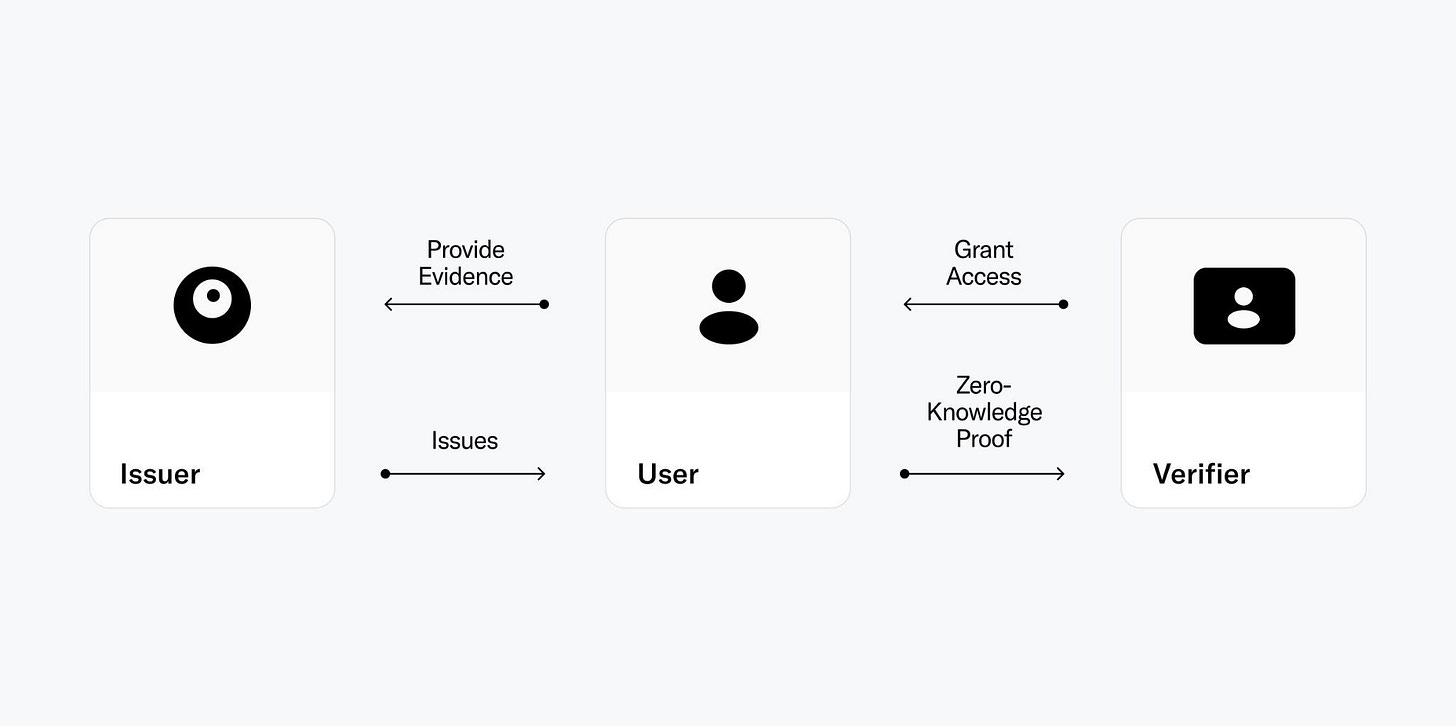
Why does this matter? Because this World ID lies at the core of the entire Proof of Human (PoH) framework. PoH is designed to answer one fundamental question in a world flooded by fake content: How can we ensure that one account equals one human, without resorting to clunky government IDs or invasive background checks?
Proof of human (PoH)
Creating a reliable way to prove someone is a real, unique human being isn't as simple as it sounds.
On a high level, these are the key building blocks required for an effective PoH mechanism, it includes (lifted from World Whitepaper):
Deduplication to ensure everyone can only verify once
Authentication to ensure only the legitimate owner of the proof of human credential can use it and
Recovery in case of lost or compromised credentials
Revocation & Expiry

Deduplication
Have we seen those eyes before?
The fundamental challenge is ensuring each person can only get one proof of humanity credential. Think of it like voting, the entire system falls apart if people can vote multiple times or sell their ballots to others.
This deduplication requirement is what makes proof of human systems so technically demanding. The system must recognize when the same person tries to register twice, even across different devices, locations, or time periods. Without this uniqueness guarantee, bad actors could farm multiple credentials or legitimate users could accidentally create duplicates, undermining the entire purpose.
Authentication
Is this the rightful owner using the ID?
Even if we solve uniqueness, another problem emerges, what stops someone from selling their proof of humanity to a bot operator or scammer? This authentication challenge runs deeper than just preventing outright theft, it also protects people who might not fully understand the consequences of sharing their credentials.
The solution requires tying each credential to its rightful owner in a way that makes unauthorized use difficult or impossible. This works similarly to how airlines check both your boarding pass and your ID—possessing the credential isn't enough; you must prove you're the person it belongs to. For high-stakes applications like financial services or voting, this additional authentication layer becomes crucial.
Recovery
What if I lose my phone or keys?
Life happens. Phones get lost, passwords get forgotten, and accounts get compromised. A robust proof of human system needs multiple fallback options when users lose access to their credentials.
The recovery toolkit includes several approaches. Users can maintain encrypted backups of their credentials, similar to backing up photos or contacts. If that fails, social recovery allows trusted friends and family to help restore access, something like needing three of your closest contacts to vouch for you. As a last resort, users can return to the original issuer to prove their identity and regain access, much like getting a replacement driver's license at the DMV.
In extreme cases where credentials are stolen or compromised, the system needs a re-issuance process, essentially the digital equivalent of canceling a stolen credit card and getting a new one. This ability to invalidate old credentials and issue fresh ones makes buying or stealing someone's proof of humanity a risky investment for bad actors.
Revocation and Expiry
How do we quarantine bad hardware and actors?
Two additional safeguards help maintain the system's overall trustworthiness over time.
Revocation handles situations where parts of the system become compromised. If a particular issuing location or process is found to be fraudulent, those affected credentials can be removed from the accepted list.
Expiry acknowledges that security measures become less effective over time as technology evolves. By requiring periodic renewal of credentials, the system can incorporate improved security measures and weed out dormant or potentially compromised accounts. Your passport works the same way, even if it's still physically intact, you need to renew it periodically with updated security features.
The Complete Picture
When these components work together, deduplication, authentication, recovery, revocation, and expiry, they create a comprehensive framework for proving humanity.
And for World Org, the center piece of it all is the World ID.
The World Org Ecosystem
Built upon a World ID is an ecosystem that entices users to buy into the network:
Worldcoin (WLD)
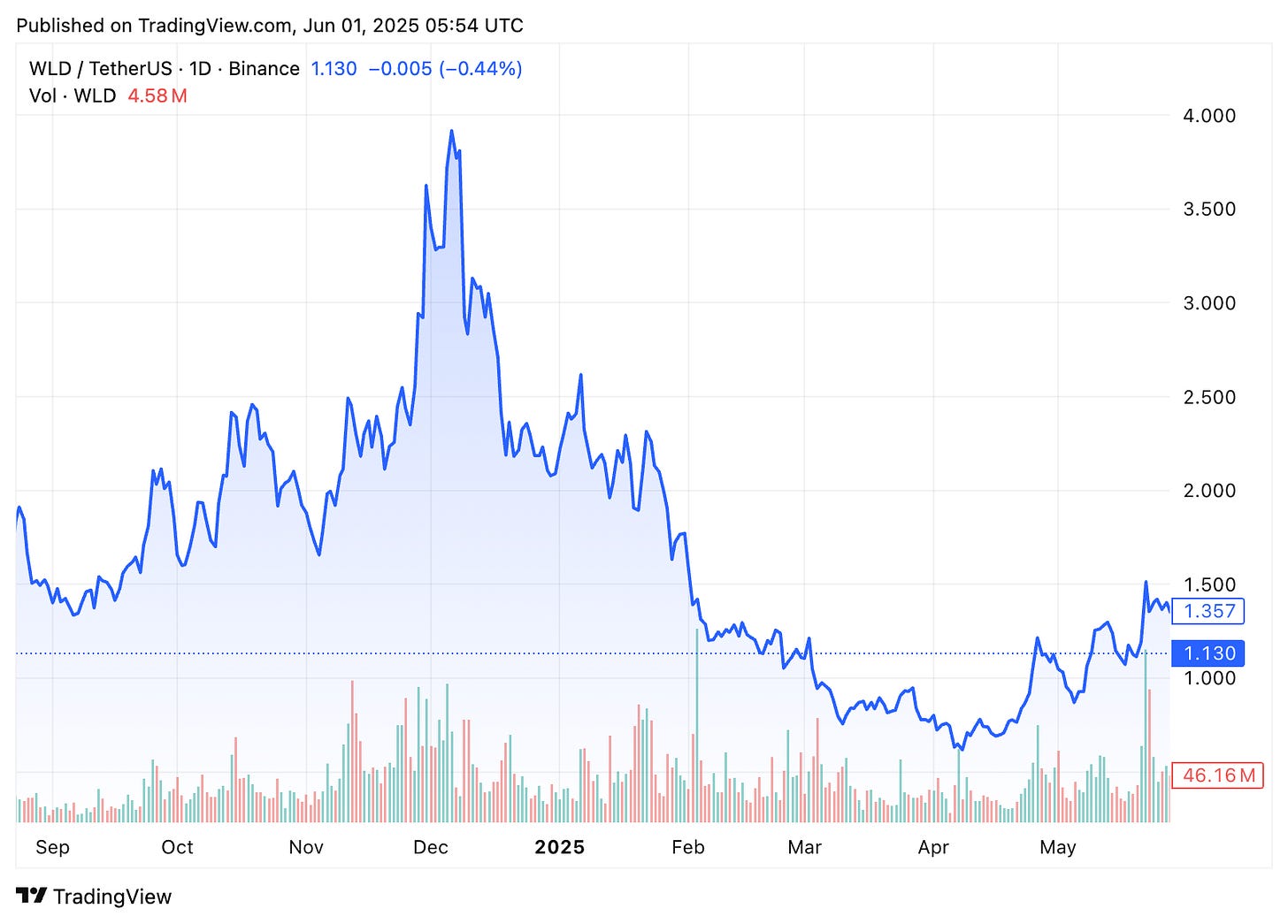
At its core, Worldcoin operates on a simple premise that every verified human being should receive a share of the global digital economy, simply for being human.
The mechanism is straightforward. Verified users receive regular distributions of Worldcoin tokens. This creates powerful economic incentives for people to verify their identity, solving one of the adoption challenge of the system.
The token also serves a deeper purpose in the ecosystem, acting as the economic backbone that makes human verification valuable. Applications can require Worldcoin holdings or proof of humanity credentials to access services, creating natural barriers against bot activity while ensuring real humans benefit from participating in the network.
World Chain
Traditional blockchains treat all users equally, World Chain breaks this paradigm by creating the first blockchain with built-in human verification at the protocol level.
The chain offers different transaction costs and capabilities based on verification status. Verified humans receive priority block space and reduced fees, while unverified users face higher costs and potential limitations.
World Chain also introduces concepts like "human governance," where certain protocol decisions require input from verified humans rather than just token holders. This prevents scenarios where wealthy actors or AI systems could manipulate governance through token accumulation, ensuring that the blockchain remains accountable to its human user base.
World App
All these manifest into the the World App, which serves as the user-friendly gateway to the entire ecosystem, packaging complex cryptographic proofs and blockchain interactions into familiar mobile app experiences.
With World App, once you’ve verified your personhood, you can do things like log into websites via World ID, send or receive digital money, and eventually use various third-party “mini apps.” More importantly, World App serves as a demonstration platform for what becomes possible when you can reliably distinguish humans from AI.
Recent partnership has increased the value of being a World App user:
World Card powered by VISA to allows spending WLD tokens
World ID verification match within applications of Match Group (owner of Tinder, Hinge)
Gaming integration with Razer to enable access to human only tournaments
The Network Effect
The three components create reinforcing network effects. Worldcoin provides economic incentives for verification, World Chain offers technical infrastructure optimized for verified humans, and World App makes the entire system accessible.
The Case Against: Why World Raise Red Flags
For all its promise, World has become one of the most controversial projects and for good reason.
The Dystopian Optics Problem
The negative reaction many people have to Worldcoin isn't hard to understand: millions of people lining up to have their eyeballs scanned by a metallic orb looks straight out of a dystopian sci-fi film.
But the concerns go deeper than aesthetics. Once you scan your iris with an Orb, that biometric signature exists in the system forever, even if you delete the app or lose access to your account. You can never truly opt out or go back to being "unscanned." Although it has to be noted that the hashed data can never be used to identify any one person specifically.
However, the fact still exist that your data can not be deleted once inputted, which is still deeply unsettling.
Many regulators have taken notice. Germany's privacy watchdog flagged "fundamental data protection issues," while Spain and Portugal temporarily banned Worldcoin's operations pending investigations. The company's initial resistance to allowing complete data deletion only reinforced concerns that users don't have true control over their most sensitive biometric information.
Exploitation and Data Colonialism
World's rollout strategy has focused heavily on the Global South, countries where official IDs are scarce, banking is limited, and the initial $50 signup bonus means something. Critics argue this constitutes "data colonialism," where Silicon Valley harvests biometric data from vulnerable populations in exchange for token payments.
There were reports of deceptive sign-up practices: users weren't given terms of service in their local language, or were enticed with free AirPods.
In Cambodia and Kenya, people were selling their Worldcoin sign-ups on a black market for about $30 each.
The image of poor communities monetizing their own iris scans to crypto speculators highlights how financial incentives can create perverse outcomes, turning human verification into just another form of digital extraction.
The Sam Altman Problem
This is where my skepticism peaks. Sam Altman runs OpenAI, which is racing to build AGI that will make human verification necessary. He also co-founded World, which sells the solution to that exact problem, he effectively controls both the problem and the solution.
As TIME pointed out, if World IDs became required to use major online services, people might have no choice but to participate in Altman's system to access large parts of the internet. That's not just a business model. That's infrastructure capture.
The mission makes sense, we do need ways to prove humanity in an age of AI. But having the same person create both the disease and the cure? That's either brilliant vertical integration or a cosmic conflict of interest.
Even weirder: Worldcoin might help AIs get online too. Altman discussed letting verified humans "delegate" their World ID to AI agents they control. Your bot butler could browse the web as you. Which kind of defeats the whole "keeping bots out" premise, doesn't it?
The Bet
Worldcoin raised $135 million in May 2025 through a direct token sale to Andreessen Horowitz and Bain Capital Crypto. Smart money is betting this becomes essential infrastructure. They're deploying 7,500 Orbs across the U.S., in gas stations, bodegas, and flagship stores.
The Orb is a bet. A bet where proving you're human requires corporate infrastructure, where your eyeball is your ticket to the internet, where the guy who broke it gets to sell us the fix.
Maybe that's the only way through. Maybe fighting deepfakes requires deep surveillance. Maybe when 90% of content is AI-generated, we'll beg for any system that guarantees the remaining 10% is real.
But watching millions queue up to feed their biometrics into a system they don't control, for tokens they barely understand, to solve a problem we're still creating, is frankly dystopian.
The Question Nobody's Asking
I keep thinking about Cho Jeong-yeon (TIME), the woman in Seoul who refused to get scanned. She asked the right question,
"Are we becoming machines instead of humans now?"
The Orb promises to separate humans from machines. But what if the very act of proving our humanity, reducing ourselves to iris codes, submitting to algorithmic verification, accepting that our biological uniqueness is just another data point, what if that's what makes us less human?
The machines don't need to pass as us. They just need to make us perform like them.
Yet perhaps that's too pessimistic. The problem of digital identity isn't going away. As AI continues to advance, we need robust ways to know who's real in the virtual realm. Worldcoin represents one daring attempt at a solution. Whether it succeeds or flames out under regulatory pressure, it has sparked a vital conversation about what digital humanity looks like.
Maybe scanning eyeballs is what it takes to preserve human spaces online. Maybe the World ID badge on your dating profile or the human-only gaming tournament is worth trading biometric privacy. Maybe Altman's vision of AI-generated wealth distributed to verified humans creates a more equitable future.
Or maybe we're building our own version of George Orwell’s 1984, one iris scan at a time.
The future offers both possibilities. But in the years ahead, being human isn't enough, you have to prove it. And the proof costs exactly one iris scan, paid to the company that helped make proof necessary in the first place.
The future has a price. It's your eyeball, and it's non-refundable.




